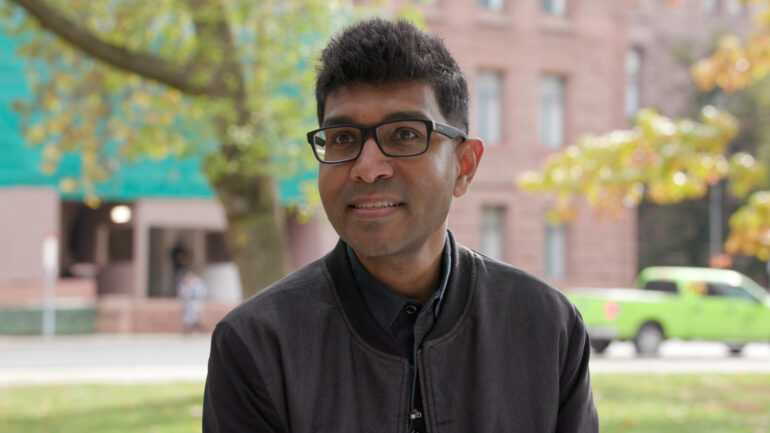Humber students have created a documentary film, Not Just Words, to shed light on the ubiquitous, yet under-discussed issue of linguistic discrimination in Toronto.
The documentary is written and directed by Stephanie Cowan, 24, and produced by Stanford Gough, 24, both second-year students of Humber College’s Film and Television Production program.
Cowan and Gough seek to raise awareness of prejudices against those who do not speak ‘standard’ Canadian English.
“We wanted to challenge the idea of what a standard is,” Cowan said.
The film is set in Toronto and follows two Spanish speakers, Roberto Valdes and Elena Calderon, as they recount their struggles with being perceived as having an accent in Toronto. Valdes is a singer and actor from Mexico, and Calderon is an accountant and mother from Peru.
Gough said the film aims to provoke thoughts about accents.
“Everyone has an accent regardless of who you are and what language you speak,” he said.
Cowan said the film also seeks to challenge people’s subconscious ideologies about languages.
“A lot of people do have a lot of ideas about accents, even if you don’t know it consciously,” she said. “I think it really does influence how we navigate the world more than we would like.”
Dr. Vijay Ramjattan, a sociolinguistics researcher and instructor at the University of Toronto, is one of the subjects in the film.
Ramjattan said an accent is part of a person’s identity, which informs others about ethnicity, gender and class background.
Although an accent tells a lot about a person, Ramjattan said, it’s sometimes used to make assumptions about people’s intelligence, friendliness or credibility.
Linguistic discrimination happens when people are treated negatively based on their accents and how they use language, Ramjattan said.

He said if a society does not like certain people because of their race, they may experience more linguistic discrimination than others.
“Linguistic discrimination is not really about language,” Ramjattan said. “It’s really about the person associated with the language.”
He said an accent plays a role in “accenting” racism, meaning it is used as a tool to normalize racism and strengthen its power in society.
“Communication is a two-way street,” Ramjattan said. “When we experience miscommunication, instead of blaming the speaker right away, why don’t we think about, could we have listened a little bit better?”
Gough said one of his favourite lines from the film is when a subject asked viewers to be more compassionate when communicating with people who speak differently.
“We definitely pride ourselves in being one of the most linguistically diverse cities in the world, but we also recognize that we have a lot to learn and areas to grow before everyone is treated with the proper respect that they deserve,” he said.
Cowan said the film was built on a pillar of compassion.
She referred to a quote by American-linguist, Noam Chomsky, that appeared at the beginning of the film.
“A language is not just words. It’s a culture, a tradition, a unification of a community, a whole history that creates what a community is. It’s all embodied in a language.”
“If we can detach those harmful, incorrect ideologies, then we can have more of an understanding about each other, and about our own cultures and other people’s cultures,” Cowan said.

